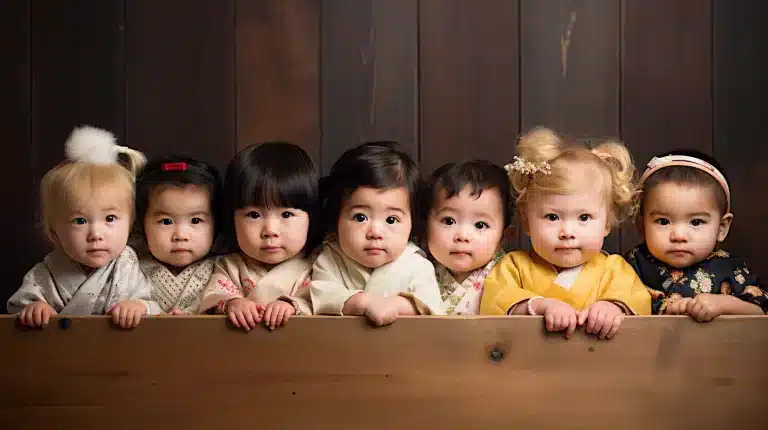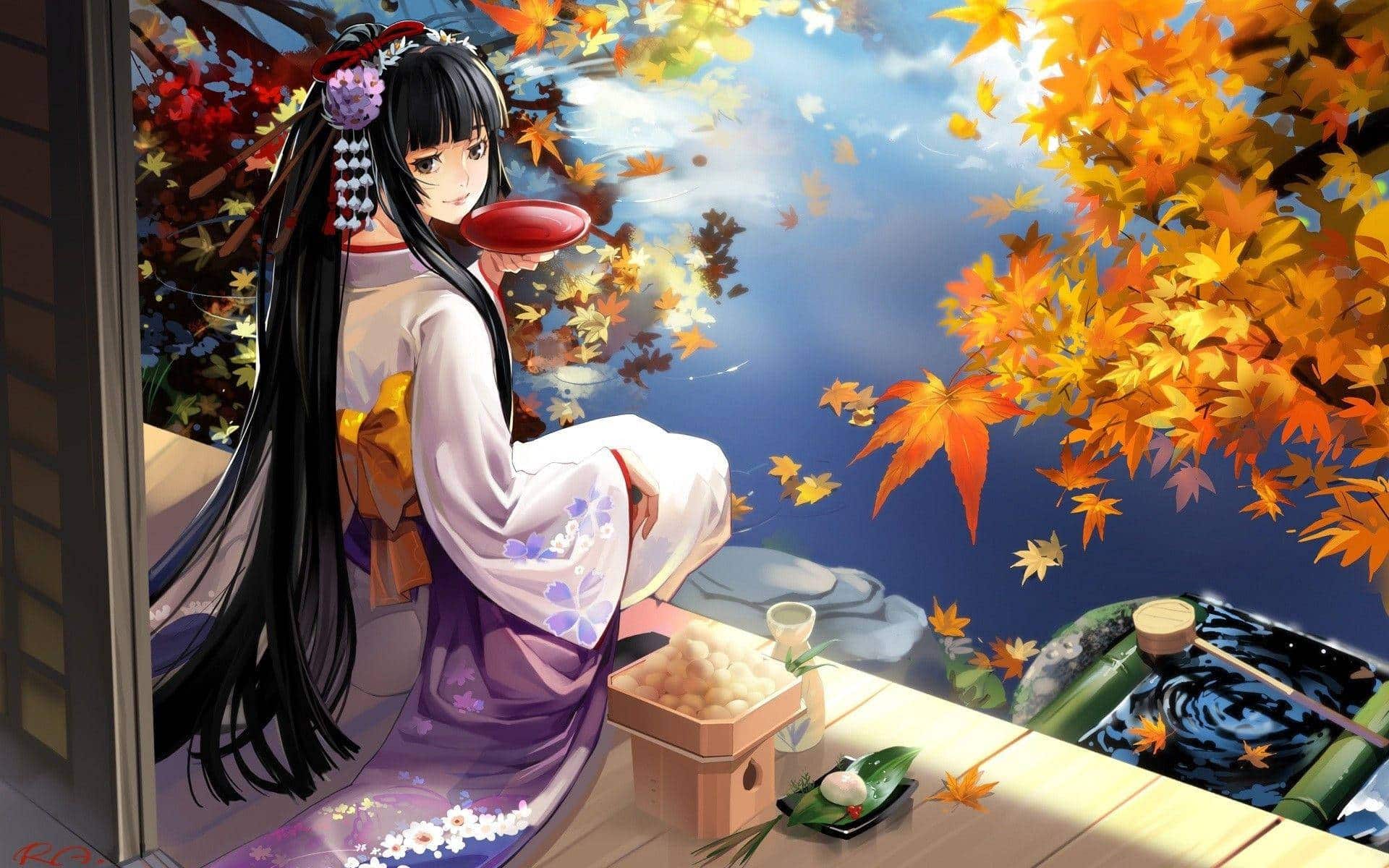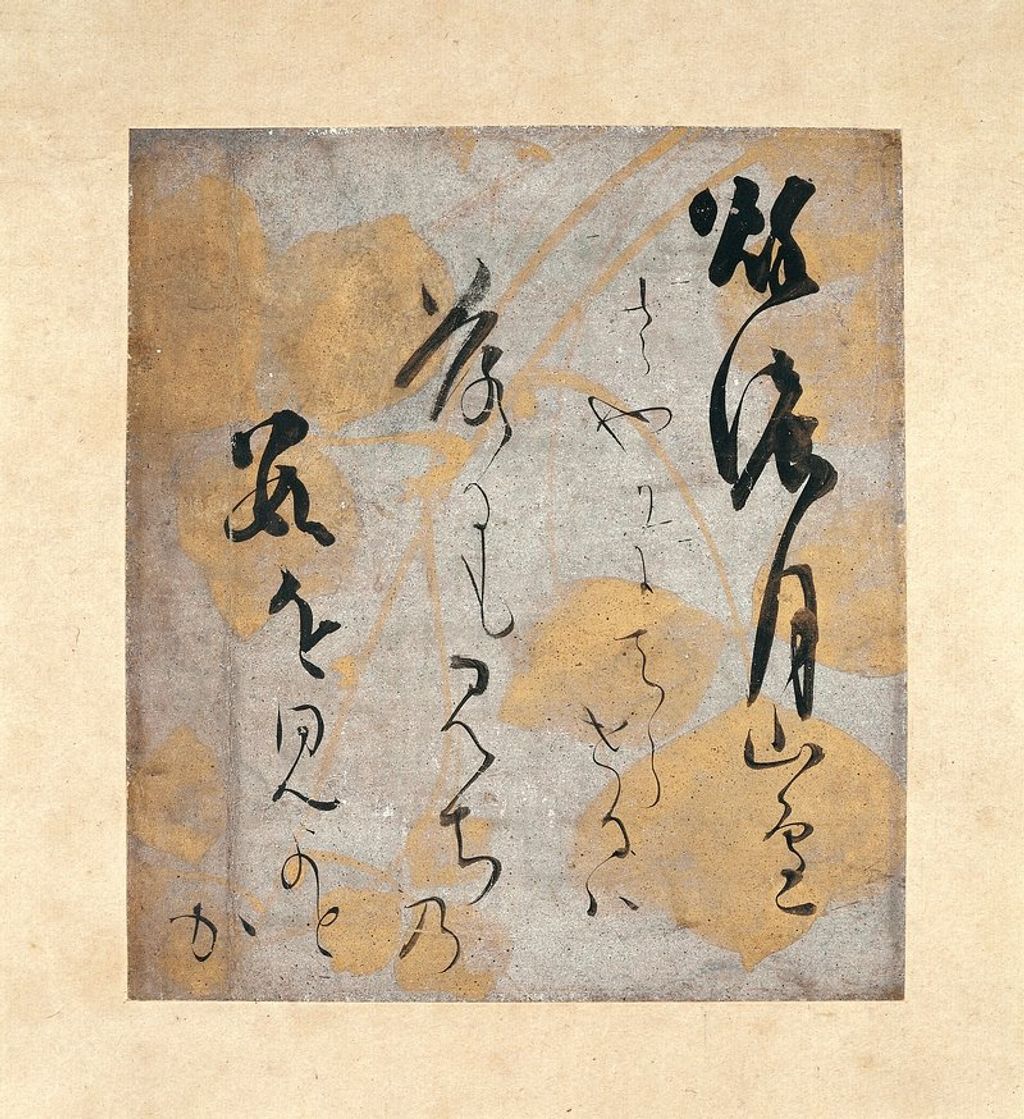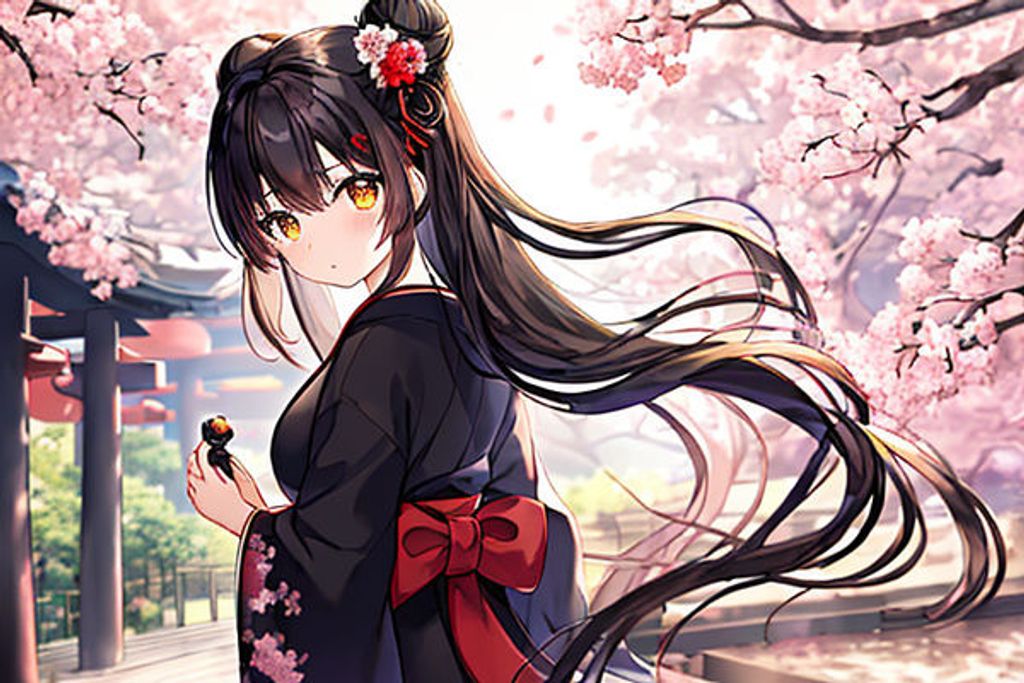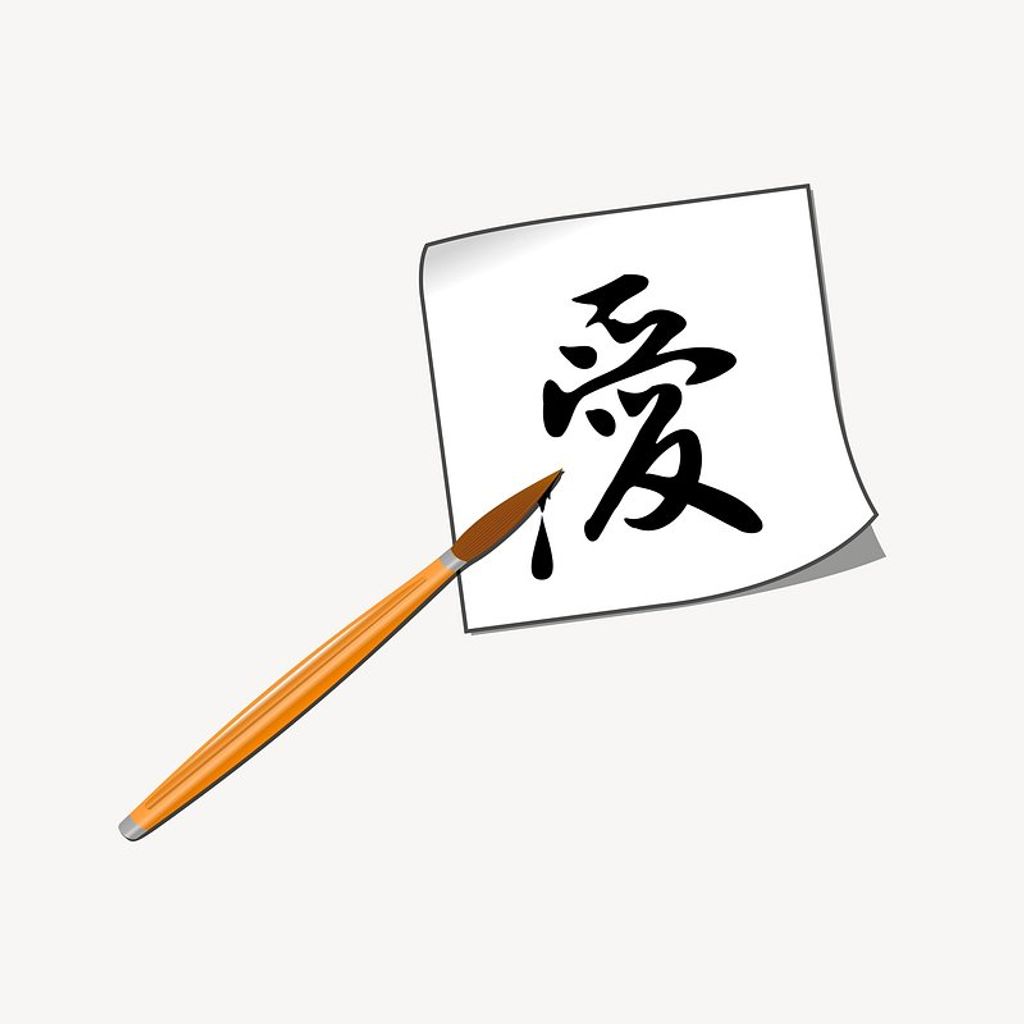Are you fascinated by the beauty and uniqueness of Japanese girl names?
In Japan, names are more than identifiers; they carry deep meanings, historical significance, and cultural beauty.
This article explores 120 of the most beautiful and meaningful Japanese girl names.
It offers a glimpse into Japan’s rich linguistic and cultural heritage.
Each name is a tale of elegance and tradition, from timeless classics to modern choices.
Ideal for parents choosing a name or writers seeking character inspiration, these names are perfect.
They also appeal to anyone intrigued by Japanese culture, promising a journey into a world of grace and story.
Discover the history, meanings, and nuances behind these enchanting names and perhaps find the one that speaks to you.
Key Takeaways
- The list provides a diverse selection of Japanese girl names, from popular and traditional to unique and regional, catering to various preferences.
- Cultural significance is paramount, with names inspired by nature, arts, literature, and even the Japanese zodiac, offering depth and connection to cultural roots.
- The article includes a pronunciation guide and cultural considerations, aiding parents in choosing a name that is both phonetically and culturally appropriate.
Popular Japanese Girl Names and Their Meanings
Timeless Classics
The beauty of Japanese girl names lies in their deep connection to tradition and culture. Timeless classics are names that have been cherished for generations and continue to be popular due to their graceful sounds and profound meanings. Here are a few examples:
- Sakura (桜) – meaning cherry blossom, a symbol of beauty and the transient nature of life.
- Yuki (雪) – translates to snow, representing purity and gentleness.
- Keiko (恵子) – a name signifying a blessed child or respectful child.
- Mei (芽衣) – signifying sprout, representing new beginnings and growth.
- Kana (佳奈) – a name denoting beautiful and skilled, epitomizing grace and talent.
- Rina (里奈) – signifying village, embodying community and roots.
- Nao (奈緒) – meaning honest thread, representing sincerity and continuity.
These names are prevalent in Japan and have gained international recognition for their elegance and simplicity.
Modern and Trendy Names
These names often blend traditional significance with a fresh twist, appealing to parents seeking something both meaningful and stylish. Among these, names that mean green have surged in popularity, symbolizing life, renewal, and energy.
Gender neutrality is also a significant trend, with many names transcending conventional gender boundaries.
Names like Stevie and Charlie, originally nicknames, have gained standalone status and are favored for their playful vibe.
- Haruka (遥) – meaning distant, far away, capturing a sense of mystery and depth.
- Rio (莉緒) – a name that conveys the beauty of the jasmine flower, trendy and feminine.
- Mio (美緒) – signifying beautiful thread, a modern take on beauty and connection.
- Airi (愛莉) – meaning love and jasmine, a blend of affection and delicacy.
- Noa (乃亞) – a name signifying love and affection, simple yet profound.
This shift mirrors societal changes in attitudes towards gender, allowing children the freedom to define their own identities.
Names Inspired by Nature
These names can evoke images of serene landscapes, vibrant flora, and the enduring qualities of the natural world.
- Sakura (桜): This means cherry blossom, a symbol of spring and renewal.
- Kaede (楓): Maple, representing the beauty and grace of autumn leaves.
- Yuki (雪): Snow, a serene and pure name for girls born in winter.
- Aoi (葵): Hollyhock, a summer flower that signifies growth and fertility.
Names with Positive Connotations
Here are a few Japanese girl names that not only resonate with such positive vibes but also have a universal appeal, including those that might be considered white girl names:
- Yuki (幸) – Meaning ‘happiness’ or ‘snow’, it is a name that conveys purity and joy.
- Akari (明) – Signifying ‘light’ or ‘brightness’, this name reflects radiance and hope.
- Hana (花) – Translating to ‘flower’, it represents beauty and the blossoming of life.
Traditional Japanese Girl Names
Names with Historical Significance
For instance, Himiko, meaning “sun child,” was the name of an influential shaman queen in ancient Japan. Similarly, Tomoe refers to the legendary female samurai known for her bravery and skill in battle.
- Himiko (日巫女) – Sun child; shaman queen
- Tomoe (巴) – Circle; legendary female samurai
- Murasaki (紫) – Purple; a nod to Lady Murasaki Shikibu, author of The Tale of Genji
- Sei (清) – Pure; Sei Shonagon, a famous poet and court lady
Names from Japanese Mythology
Names like Kogitsunemaru (小狐丸), meaning ‘little fox’, are inspired by legendary tales such as the Noh play Kokaji, where a swordsmith forges a sword with the help of a deity.
Similarly, Kusanagi-no-Tsurugi (草薙の剣), or ‘grass cutter’, is a name that resonates with power and divinity, being one of the three Imperial Regalia of Japan and a symbol of the Storm God Susanoo’s victory over the Orochi Serpent.
Ame-no-Ohabari (天の尾羽張) and Ama-no-Habakiri (天羽々斬) are swords wielded by deities in mythology and are often referenced in contemporary storytelling.
Royal and Aristocratic Names
Here are a few examples:
- Himari (陽葵) meaning “sunflower,” often associated with the radiance and life-giving force of the sun.
- Ayaka (綾香) which stands for “colorful flower,” symbolizing beauty and grace.
- Reika (麗華) meaning “lovely flower,” a name that exudes charm and femininity.
Religious and Spiritual Names
In Japan, many girl names carry a deep spiritual or religious significance, often derived from Buddhist or Shinto beliefs.
For example, Yumi means ‘beautiful bow’, symbolizing the potential to reach towards the divine.
- Hikari – meaning ‘light’, representing brightness and purity in one’s life.
- Nozomi – meaning ‘hope’, reflecting a wish for a positive future.
- Sakura – meaning ‘cherry blossom’, which holds profound cultural and spiritual symbolism in Japan.
Unique and Uncommon Japanese Girl Names
Rare and Distinctive Names
Here are a few examples:
- Ace: A name that signifies excellence, perfect for a child destined to stand out.
- Adair: Of Scottish origin, meaning “oak tree ford,” it carries a natural elegance.
- Arbor: A poetic name referring to a garden shelter, symbolizing growth and protection.
- Arden: Translating to “eagle valley,” it suggests both freedom and strength.
- Armani: While often a surname, it’s associated with sophistication, thanks to the Italian fashion designer.
- Arrow: A sharp and focused name, ideal for a child with a clear direction in life.
Names with Deep Cultural Roots
These names are not just labels, but carry significant meanings and stories that have been passed down through generations.
- Haruko – Spring child; symbolizing new beginnings and the beauty of nature.
- Yoshiko – Good child; representing the virtues of goodness and respect.
- Tamiko – Child of many beauties; a name that celebrates the multifaceted nature of beauty.
- Masako – Elegant child; a name that conveys grace and sophistication.
While these names may not be as common as some modern nicknames for girls, they offer a unique identity and a strong connection to Japanese heritage.
It’s important to honor these names and the stories they carry, as they provide a window into the soul of Japanese culture.
Names with Unique Characters or Pronunciations
In the quest for a distinctive identity, some parents opt for Japanese girl names with unique characters or pronunciations. These names often stand out due to their uncommon kanji combinations or their melodious yet rare phonetics. Here’s a glimpse into such names:
- Kokona (心菜) – A name with a heartwarming character for ‘heart’ and a refreshing one for ‘vegetable’, symbolizing a nurturing nature.
- Yuzuki (柚月) – Combining the character for a citrus fruit with that for ‘moon’, this name evokes a sense of freshness and serenity.
- Rinna (凛菜) – ‘Dignified’ paired with ‘greens’, this name suggests poise and vitality.
Italics are used for names that are variations of more common ones, allowing parents to personalize their child’s name while keeping it easy to read and pronounce.
For example, Sakura could become Sakurako, adding a touch of uniqueness.
Japanese Girl Names by Region
Names Unique to Hokkaido
Hokkaido, the northernmost island of Japan, has its own distinct culture and history, which is reflected in its unique names.
One such name is Kogitsunemaru (little fox), inspired by the legendary sword mentioned in the Noh play Kokaji.
This name carries the mystique of the Shinto fox deity, Inari, and the artistry of swordsmith Munechika Kokaji.
Another notable name is Kusanagi-no-Tsurugi (grass cutter), derived from one of the three Imperial Regalia of Japan.
This name echoes the valor of Storm God Susanoo and the legendary tale of the Orochi Serpent.
These names not only embody the rich folklore of Hokkaido but also offer a connection to Japan’s ancient traditions and myths.
Names Popular in the Kansai Region
The Kansai region of Japan, known for its rich cultural heritage and historical cities like Kyoto and Osaka, has a unique set of popular girl names.
These names often carry the charm and elegance of traditional Japan while also reflecting the modern vibrancy of the region’s urban centers.
Some of the names that have found favor in the Kansai region include:
- Haruka (遥) meaning ‘distant, remote’,
- Yui (結衣) signifying ‘tie, bind; garment’,
- Mai (舞) which translates to ‘dance’, and
- Saki (咲) meaning ‘blossom’.
Names from Okinawa and Ryukyu Islands
The Okinawa and Ryukyu Islands are known for their distinct culture and language, which is reflected in their unique names.
These names often carry deep meanings related to the islands’ natural beauty and cultural heritage.
For instance, Ayaka (彩花) means “colorful flower,” symbolizing the vibrant flora of the region, while Rin (凛) signifies “dignified,” a quality highly valued in the local community.
Here are a few examples of names from this region:
- Haruka (遥) meaning “distant, remote,” evoking the islands’ geographical location.
- Shiori (栞) which stands for “bookmark,” often associated with memories and nostalgia.
- Nanami (七海) translating to “seven seas,” a nod to the maritime culture.
Japanese Girl Names Inspired by Art and Literature
Names from Classical Literature
- Yukiko (雪子), meaning ‘snow child,’ is reminiscent of the delicate and pure characters found in ancient Japanese tales.
- Naoko (直子), translating to ‘honest child,’ may evoke the straightforward and sincere heroines of literary classics.
- Sakura (桜), meaning ‘cherry blossom,’ is not only a symbol of beauty in Japan but also a common name for poetic protagonists.
Names Influenced by Famous Artists
Names like Yayoi, after Yayoi Kusama, and Chihiro, inspired by Chihiro Iwasaki, are beautiful and carry the legacy of influential artists.
- Yayoi (やよい) – Inspired by Yayoi Kusama, known for her iconic polka dots and infinity installations.
- Chihiro (ちひろ) – Derived from Chihiro Iwasaki, a beloved children’s book illustrator.
- Emi (えみ) – A nod to Emi Wada, an Oscar-winning costume designer.
- Sayoko (さよこ) – Honoring Sayoko Yamaguchi, the first Asian model to grace international runways.
Names Derived from Poetry and Haiku
Names like Sachiko, meaning “child of bliss,” reflect the serene and uplifting qualities found in traditional Japanese literature.
Here are a few names that echo the poetic spirit:
- Devin, meaning “poet” or “bard,” a name that carries the legacy of those who weave words into art.
- Eden, symbolizing a paradise or place of perfect happiness, much like the idyllic scenes often depicted in poetry.
- Fenix, a variant of Phoenix, represents rebirth and renewal, themes commonly explored in poetic narratives.
Seasonal Japanese Girl Names
Spring-Themed Names
Here are a few spring-themed names that capture the essence of the season:
- Haru – Meaning spring, it’s a name that represents the entire season.
- Sakura – Cherry blossoms are iconic in spring, and this name means cherry blossom.
- Ren – Signifying lotus, it evokes images of flowers blooming in spring ponds.
- Hana – Simply meaning flower, it’s a popular choice for girls born in the spring.
Summer-Inspired Names
Here are a few summer-inspired Japanese girl names:
- Natsu (夏) – Meaning summer, it’s a straightforward yet popular choice.
- Himawari (向日葵) – This name means sunflower, a plant that thrives in the summer sun.
- Kaede (楓) – Signifying maple, which may seem autumnal, but in Japan, the fresh green leaves of early summer are also celebrated.
Autumn-Related Names
Momiji, meaning ‘maple leaf’, is a quintessential choice, evoking the vibrant reds and oranges of the season.
Kaede, another name meaning ‘maple’, also reflects the autumnal scenery.
Names like Koharu, meaning ‘little spring’, are paradoxically popular for girls born in the fall, perhaps as a nod to the fleeting beauty of both seasons.
Shiki, meaning ‘four seasons’, suggests a balance and appreciation for the year’s cyclical nature.
Winter Names and Their Significance
Names like Yuki (meaning snow in Japanese) and Fuyuko (meaning winter child) are popular choices for girls born in the colder months.
- Yuki – Snow
- Fuyuko – Winter child
- Setsuko – Snow child
Japanese Girl Names and the Zodiac
Names Related to the Japanese Zodiac
In Japan, the zodiac, or junishi, plays a significant role in cultural traditions and can influence the naming of a child.
Each year is associated with one of the twelve zodiac animals, and it is believed that a person’s character traits can be linked to their zodiac sign.
Here are a few Japanese girl names that are inspired by the zodiac:
- Akiko (秋子): Meaning ‘autumn child’, often associated with the year of the Rooster.
- Haruko (春子): Meaning ‘spring child’, linked with the year of the Dragon.
- Fuyuko (冬子): Meaning ‘winter child’, related to the year of the Ox.
Names Influenced by Astrological Signs
Each of the 12 zodiac signs is associated with specific personality traits and elemental forces.
Here’s a brief look at how some Japanese girl names align with astrological signs:
- Aries (Fire): Hinata (陽向) meaning ‘sunny place’ or ‘toward the sun’.
- Taurus (Earth): Kaede (楓) meaning ‘maple’, representing steadfastness.
- Gemini (Air): Sora (空) meaning ‘sky’, signifying curiosity and freedom.
- Cancer (Water): Tsukiko (月子) meaning ‘moon child’.
- Leo (Fire): Himari (陽葵) meaning ‘sunflower’, reflecting radiance.
- Virgo (Earth): Chisato (千里) meaning ‘thousand wisdoms’, indicating meticulousness.
- Libra (Air): Nanami (七海) meaning ‘seven seas’, symbolizing balance.
- Scorpio (Water): Mizuki (美月) meaning ‘beautiful moon’, denoting intensity.
- Sagittarius (Fire): Saki (咲) meaning ‘blossom’, suggesting optimism.
- Capricorn (Earth): Yuriko (由里子) meaning ‘child of reason’, embodying ambition.
- Aquarius (Air): Rin (凛) meaning ‘dignified’, representing innovation.
- Pisces (Water): Minori (実) meaning ‘truth’, expressing compassion.
Japanese Girl Names from Pop Culture
Names from Anime and Manga
Mugen is not only a name that resonates with the poetic notion of infinity but also connects to the mighty sword wielded by Yu Kanda in D. Gray Man.
Similarly, the Nichirin Swords from Kimetsu no Yaiba (Demon Slayer Anime) are emblematic of the characters’ strength and determination.
Here are a few names that have been inspired by anime and manga:
- Sakura: A name that signifies cherry blossoms and is associated with the character from Naruto.
- Hikari: Meaning ‘light’, a name that reflects positivity and is found in various anime.
- Rei: A name that can mean ‘spirit’ or ‘ghost’, popularized by Neon Genesis Evangelion.
Names of Famous Actresses and Idols
The name Haruka, which means ‘spring flower’ or ‘distant,’ gained popularity following the success of actress Haruka Ayase.
Similarly, the name Yui, meaning ‘bind; garment,’ became well-liked after the rise of singer and actress Yui Aragaki.
- Aoi (meaning ‘hollyhock; blue’) – Aoi Miyazaki
- Rena (meaning ‘rebirth; lotus’) – Rena Nounen
- Mao (meaning ‘dance; true’) – Mao Inoue
- Mirei (meaning ‘future; rely on’) – Mirei Kiritani
Names from Video Games
- Vanellope (Wreck-It Ralph) – The glitched racing character in the game Sugar Rush.
- Wendy (Peter Pan) – The eldest Darling child who flies to Neverland.
- Winifred (The Jungle Book) – Colonel Hathi’s wife in the elephant troop.
- Yzma (The Emperor’s New Groove) – The eccentric villain who wants to usurp the throne.
Japanese Girl Names with International Appeal
Names That Are Easy to Pronounce Globally
Names like Mia, Sara, and Emma have gained popularity worldwide for their simplicity and ease of pronunciation.
- Mia – Universally recognized and easy to say, this name has Italian origins meaning ‘mine’ or ‘wished-for child’.
- Sara – With roots in Hebrew, this name means ‘princess’ and is known for its simplicity across languages.
- Emma – A name with Germanic origins meaning ‘whole’ or ‘universal’, Emma is both classic and internationally friendly.
Names That Blend Cultures
- Amelia: With Old German origins meaning ‘exalted or noble’, Amelia is a name that resonates across cultures and is linked to the pioneering aviator Amelia Earhart.
- Aniyah: A name that echoes the sounds of Aliyah, Amaya, and Anya, Aniyah offers a modern twist on traditional names.
- Leilani: A name of Hawaiian origin meaning ‘heavenly flowers’, popular among various cultures and symbolizing the beauty of blending traditions.
The Significance of Surnames in Japanese Girl Names
The Role of Family Names
- Heritage: A family name is a reflection of heritage and can indicate a person’s origins, be it a specific region or a notable family.
- Sentiment: Many parents choose to honor relatives by passing down family names, creating a sentimental bond across generations.
- Cultural Significance: Certain surnames are associated with social status, historical events, or professions, influencing the choice of a girl’s first name.
How Surnames Influence First Names
- Some families may choose a first name that starts with the same syllable as the surname to create a rhythmic connection.
- Others might select a first name that contrasts with the surname to provide balance.
- The meaning of the surname can also play a role in the selection of the first name, aiming for a complementary or auspicious combination.
The Art of Naming: Kanji and Kana in Japanese Girl Names
Understanding Kanji in Names
The use of kanji in Japanese girl names is not just a form of writing; it’s a rich tapestry of meaning and tradition.
Each kanji character carries its own significance, which can influence the personality and destiny ascribed to a name. For example, the name ‘Yuki’ can mean ‘snow’ (雪) when written with one kanji, or ‘happiness’ (幸) with another.
Italics are used to denote the subtleties in pronunciation and meaning that kanji bring to names.
This is crucial, as the same phonetic name can have multiple meanings depending on the kanji used. Consider the name ‘Kimi’ which can be written as 君, meaning ‘you’, or 貴美, meaning ‘noble beauty’.
The Use of Hiragana and Katakana for Names
In the art of Japanese naming, hiragana and katakana serve distinct roles.
Hiragana is often used for feminine and soft-sounding names, while katakana might be chosen for more modern or Western-influenced names.
For example, a name like ‘Hana’ (はな) written in hiragana conveys a traditional and delicate nuance, whereas ‘Rei’ (レイ) in katakana could suggest a stylish and contemporary vibe.
Navigating the Nuances of Japanese Girl Names
Pronunciation Guide
Mastering the correct pronunciation of Japanese girl names is essential for showing respect and appreciation for the culture. Here’s a brief guide to help you get started:
- Vowels are pronounced consistently, with ‘a’ as in ‘father’, ‘i’ as in ‘machine’, ‘u’ as in ‘flute’, ‘e’ as in ‘met’, and ‘o’ as in ‘torn’.
- Consonants generally follow English pronunciation, but ‘r’ is slightly rolled, and ‘g’ is always hard as in ‘go’.
- The syllable stress is typically flat, with equal emphasis on each part of the name.
Cultural Considerations in Naming
In Japan, names are often chosen for their harmonious blend with the family’s surname, and many adhere to cultural or religious traditions to maintain the family’s heritage. The meaning of a name is particularly impactful, as it is believed that a child will grow to embody the characteristics it represents.
- Consider the name’s meaning and cultural significance.
- Pay tribute to family or personal sentiments.
- Ensure the name aligns with cultural and religious traditions.
- Reflect on the name’s potential long-term impact on the child.
Remember, a name is not just for infancy but for a lifetime. It should be chosen with the foresight that it will suit an individual throughout all stages of life.
Conclusion
This comprehensive list of 120 Japanese girl names offers a diverse array of choices that reflect the rich cultural heritage and linguistic beauty of Japan.
From the timeless charm of Sachiko to the modern allure of unique names, there is something for every preference.
Whether you are seeking a name with deep meaning or simply exploring the variety of Japanese names, we hope this collection has provided you with inspiration and a deeper appreciation for the significance behind each name.
Remember, the name you choose will be a gift that your child carries with them throughout their life, making it a decision of both the heart and the mind.
Frequently Asked Questions
What Are Some Popular Japanese Girl Names that Start with The Letter S?
Some popular Japanese girl names starting with the letter S include Sachiko, Sakura, Saki, Sayuri, and Sumiko. Sachiko is particularly well-known and carries the meaning ‘child of happiness.’
How Has the Name Sachiko Influenced Baby Naming Trends?
The name Sachiko became popular after Princess Sachiko Hisa and has been used to convey happiness and success. It has seen varying popularity over time, including in the US.
How Do the Meanings of Japanese Girl Names Reflect Cultural Values?
In Japanese culture, names are often chosen for their meanings, which reflect wishes for the child’s life. For example, Sachiko means ‘happy child,’ expressing a desire for the child’s joy.
Are There Any Regional Variations in Japanese Girl Names?
Yes, some Japanese girl names may be more popular or unique to certain regions, such as Hokkaido or the Kansai region. Names from Okinawa and the Ryukyu Islands may also have distinct characteristics.

